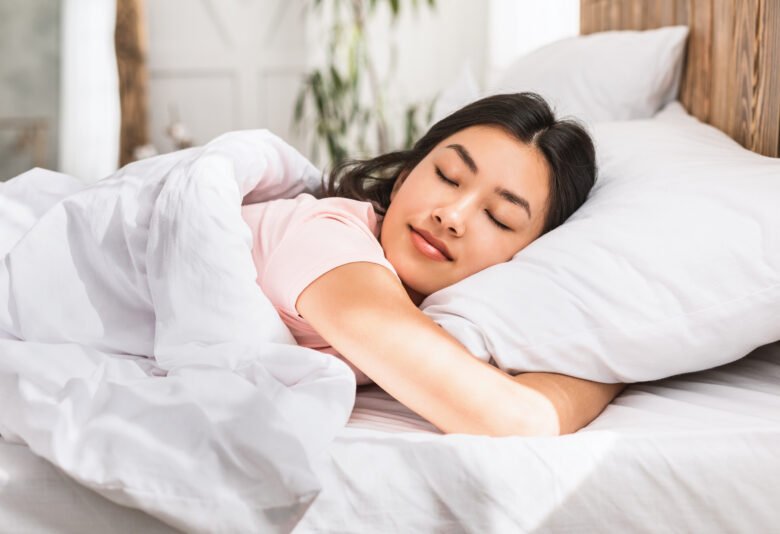A good night’s sleep is one of the healthiest things you can do. Still, a lot of people have trouble falling asleep or staying asleep because their bodies and minds are still stimulated or stressed by the time they go to bed. The modern way of life, with its computers, schedules, and other distractions, can make it harder for our bodies to do what they need to do to get ready for sleep. Luckily, there are a number of easy, natural ways to unwind before bed that can make your sleep better and help you feel better when you wake up.
Set up a regular way to wind down
Setting up a relaxing evening routine is one of the best natural ways to get to sleep. Routines are good for your body, and doing the same things every night to relax tells your brain it’s time to slow down. Start your process to relax at least 30 to 60 minutes before you go to bed.
This could mean doing things like turning down the lights and gadgets, putting on comfy pajamas, or drinking a cup of herbal tea to relax. By doing these small things every night, you can turn them into a sleep routine that gets your body and mind ready for sleep.
Turn off the TVs and dim the lights
Blue light from phones, TVs, tablets, and computers can stop the production of melatonin, which makes it harder to fall asleep at night. Make sure you turn off computers at least an hour before bed to help your body’s normal sleep cycles.
Use this time to relax without a screen by reading a book, writing in a notebook, or listening to music. Don’t scroll through your phone or watch TV. It also helps your brain get ready for bed by turning down the lights in your home. To make a calm, sleep-friendly space, use lamps with warm light or even candles.
Drink herbal teas that are known to help you relax
Before going to bed, a warm cup of herbal tea can help you relax. Herbs have been used for hundreds of years to help people relax and sleep well. Many people drink chamomile tea before bed because they think it helps calm the nervous system. Valerian root, lemon balm, passionflower, and lavender are some other great choices.
Pick mixes that don’t have caffeine, and sit somewhere quiet and drink your tea slowly. This not only calms your digestive system, but the routine itself helps you calm down and get ready for sleep.
Do meditation and deep breathing
Easy breathing techniques can quickly make you feel less stressed and calm your body and mind. The parasympathetic nervous system controls rest and relaxing. Deep breathing can help turn it on. People often use the 4-7-8 breathing method, which means they breathe in for 4 seconds, hold their breath for 7 seconds, and breathe out for 8 seconds.
Adding a few minutes of awareness or meditation to your evening routine can also help calm your mind and stop your thoughts from rushing. You can use sleep apps or guided exercises, or you can just sit still and concentrate on your breath. Over time, these habits will help your mind learn to relax better every night.
Stretch or do some gentle bedtime exercises Asana
Moving your muscles gently before bed can help ease the stress that has built up during the day. If you’ve been sitting at a desk or being on your feet all day, do some gentle yoga moves or simple stretches to tell your body it’s time to rest.
As you stretch, pay attention to moving slowly and deliberately and taking deep breaths. Child’s pose, legs up the wall, and forward folds are some of the most relaxing poses. This kind of action gets your blood moving, lowers your stress levels, and makes it easier to fall asleep.
Aromatherapy can help you relax
Scents have a big effect on how we feel and how much we rest. Essential oils are used in aromatherapy to make a relaxing space that helps people sleep. Lavender oil has been shown to help people sleep the most and to drop heart rate, blood pressure, and nervousness.
Chamomile, sandalwood, ylang-ylang, and bergamot are some other helpful oils. Add a few drops to your pillow or use an essential oil burner in your bedroom. You can also mix essential oils with carrier oils and rub them on your arms or neck. For the best results, make sure you use pure, high-quality essential oils.
Take a shower or bath that is warm
Your body temperature can be raised a little by taking a warm bath or a gentle shower in the evening. When you go outside and your body temperature starts to drop, it’s like the natural cooling that happens before you sleep. This tells your body it’s time to rest.
You can make your bath more relaxing by adding Epsom salts or a few drops of aromatherapy oils. For those who need some quiet time before bed, warm water can also help with sore muscles and calm the mind.
Don’t eat big meals, drink coffee, or smoke before bed
How well you sleep depends on what you eat in the hours before bed. Eating a big or hot meal late at night can make you feel sick and make it hard to sleep. Even small amounts of caffeine can stay in your body for hours and stop your brain from making chemicals that help you sleep.
It’s true that booze can make you sleepy at first, but it often keeps you up at night. When you’re hungry, try to eat dinner at least two to three hours before bed. If you’re still hungry, choose light, easy-to-digest snacks. If you want to relax, drink green tea or warm milk instead of drinks that wake you up.
Write in a journal to clear your mind
If you have a lot of thoughts at night, writing in a book can help you clear your mind and get ready for sleep. You can work through your day and let go of what’s on your mind by writing down your fears, thoughts, or even a list of things you’re thankful for.
Writing in a book for a short time every night can help you feel less anxious, see things in a new light, and end the day on a positive note. Really, you don’t need to write much—just a few lines can help clear your mind.
Make your bedroom cool, quiet, and comfortable
How quickly you fall asleep depends a lot on where you are. A cool room, about 65°F (18°C), helps your body get to the right temperature for a good night’s sleep. To block out noise, use dark curtains, a white noise machine, or earplugs.
Ensure your mattress, pillows, and other items are comfy and help you sleep well. Keep things out of your bedroom and only use them for sleep and relaxation to train your brain to connect them with rest.
Relaxing naturally will help you sleep better and deeper
You don’t need expensive tools or hard-to-follow practices to relax naturally before bed. Simple habits, like drinking herbal tea, turning off computers, taking deep breaths, and making your space calm, can have a big impact on how well you sleep. When you do these natural things on a daily basis, they tell your body that it’s okay to relax, let go, and rest. Your ability to fall asleep, stay asleep, and wake up feeling fully rested and prepared for the day will improve with time.




